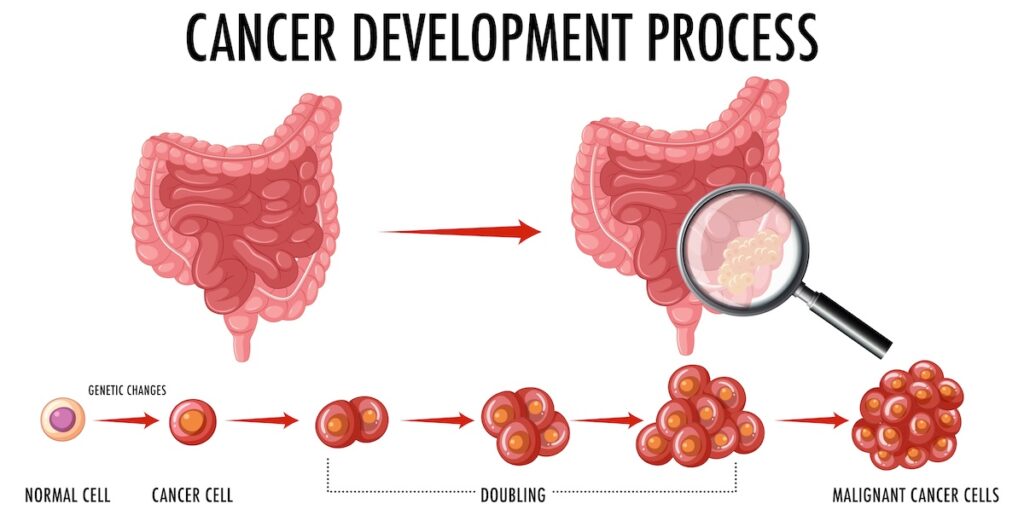Colon cancer is rising rapidly among adults under 50, and new research points to a disturbing cause—E. coli bacteria from contaminated food, especially during childhood. A major international study has found that exposure to certain strains of E. coli producing a toxin called colibactin could be linked to DNA damage in the colon, leading to early-onset colorectal cancer.
New Study Uncovers the E. coli and Colon Cancer Link
A groundbreaking study published in Nature analyzed tumor samples from 981 colorectal cancer patients across 11 countries. Researchers discovered that DNA mutations caused by colibactin, a toxin produced by some strains of E. coli, were 3.3 times more common in patients diagnosed with colon cancer before the age of 40. These dangerous mutations often form before the age of 10, suggesting that childhood exposure to E. coli could set the stage for cancer decades later.
Colibactin attacks and damages DNA in the cells lining the colon, potentially leading to tumor formation. The study found that around 15% of early genetic mutations in young patients could be traced back to this bacterial toxin. This highlights the critical role of gut health and bacterial infections in cancer development.
How Diet and Gut Health Influence Colon Cancer Risk
A poor diet can make the colon more vulnerable to harmful bacteria like E. coli. Low-fiber, high-processed food diets thin the mucus layer of the gut, allowing colibactin-producing E. coli to damage colon cells. In contrast, high-fiber diets support healthy bacteria that help protect the gut from inflammation and cancer.
Low-carb and low-fiber diets have been shown to disrupt gut health, increasing the risk of harmful bacterial overgrowth. A healthy, balanced diet starting in childhood is essential to reduce this risk.

How to Protect Yourself from E. coli and Lower Colon Cancer Risk
- Eat more fiber-rich foods like fruits, vegetables, whole grains, and legumes to support a healthy gut microbiome
- Limit red and processed meats, which have been linked to higher colorectal cancer risk
- Stay physically active, aiming for at least 150 minutes of moderate exercise weekly
- Maintain a healthy weight, as obesity is a risk factor for colon cancer
- Avoid smoking and limit alcohol, both of which contribute to cancer risk
- Practice safe food handling, including proper handwashing and cooking meats thoroughly to prevent E. coli infection
- Include probiotic-rich foods such as yogurt and fermented vegetables, which may help balance gut bacteria
Conclusion
The link between E. coli exposure in childhood and the rising cases of colon cancer in young adults is a wake-up call about the importance of gut health. A diet rich in fiber, good hygiene, and healthy lifestyle choices can help protect against harmful bacteria and reduce the risk of colorectal cancer. Paying attention to what we eat and how we live from an early age could make all the difference.